Protecting Vineyards: History of Preventing Exotic Pest Establishment and the Threat of Spotted Lanternfly
January 29, 2025
1:00 pm - 2:30 pm
Protecting Vineyards: History of Preventing Exotic Pest Establishment and the Threat of Spotted Lanternfly
The winegrape industry faces many challenges with the threat of exotic pests and their ability to move within the global supply chain. In this seminar, experts will take us through what we’ve learned from the establishment of the Vine Mealybug and highlight the success story on the eradication of the European Grapevine Moth. We will then take a deep dive on our next biggest threat, the Spotted Lanternfly (SLF). Dr. Urban of Penn St. will talk about the current impacts that SLF is having on winegrapes on the east coast and their various control successes and challenges. Finally, Dr. McRoberts will present modeling research highlighting SLF’s potential arrival timing and method of travel/spread.
This seminar will give attendees the most recent information on SLF biology, the various host plant species, strategies for control, and hopefully stimulate action to prevent SLF from getting established on the west coast.
Moderator
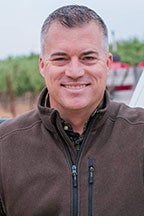

Randy Heinzen
Vineyard Professional Services, Inc., California
Sessions:
New Benchmarking for Vineyard Budget Success: Insights and Practical Applications
Randy Heinzen is the owner of Vineyard Professional Services (VPS), a farm management company operating across the Central Coast of California and based in Paso Robles.
Before becoming President of VPS, Randy farmed for Beckstoffer Vineyards Napa Valley, and prior to that was the Director of Vineyard Operations at Saintsbury Winery. Beyond being an ASFMRA Accredited Farm Manager, his educational background includes studying Viticulture at the University of Adelaide, earning a degree from Cal Poly San Luis Obispo, and Winery Business Management Certificates from Sonoma State and UC Davis.
Randy’s commitment is demonstrated through involvement in a number of organizations. He serves as an At-Large Board Member of the National Grape Research Alliance, Treasurer of the Paso Robles Wine Country Alliance, Board President of the CDFA Pierce’s Disease and Glassywing Sharpshooter Commission, and appointee to the AgWest Local Area Committee (Coastal Region). His leadership contributions were recognized recently as CAWG’s 2025 Wine Industry Leader of the Year.
Outside of work, Randy and his family lead full lives engaged in local activities from athletics to agricultural pursuits. Randy and his wife, vineyard Realtor Jenny Heinzen, contribute as animal haulers and sports coaches, while their children assist in running the family vineyard and businesses.
Speakers
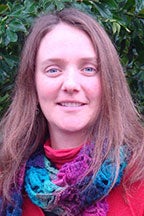

Monica Cooper
University of California, Cooperative Extension, Napa County
Dr. Monica Cooper joined University of California, Cooperative Extension (UCCE) in Napa County as a Viticulture Farm Advisor in April 2009. Her formative work in the Peace Corps and her graduate degree program led her to a career in UCCE, at the intersection of her passions for science, plants, and public service. Educated as a Plant Doctor at the University of Florida, she has multidisciplinary training in plant pathology, entomology, soils, and plant science that she draws upon to help growers diagnose vineyard problems. Her applied research and outreach programs provide evidence-based technical information to the vineyard industry.
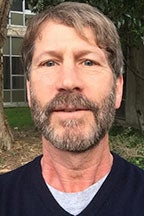

Kent Daane
University of California, Berkeley
Dr. Kent M. Daane is a Distinguished Professor of Cooperative Extension Specialist in the Department of Environmental Science, Policy and Management, University of California, Berkeley, CA. He has laboratories on the Berkeley Campus and at the Kearney Agricultural Research and Extension Center (near Fresno California and in the center of the State’s extension agricultural industries).
For the past 35 years, Dr. Daane’s laboratory has worked on the development of IPM and sustainable agriculture programs for insect and mite pests in vineyards and orchards (pistachio, almond, stone fruit, and olive), lettuce, and urban (eucalyptus) systems. Research on and extension of better arthropod pest management systems have been the laboratory’s primary objective and, to this goal, he and lab members have delivered >900 presentations at farmer and research symposia and co-authored >250 peer-reviewed publications (Google Scholar h-index 63 and i10-index of 235). Biological control, insect ecology, natural enemy biology, applied use of pheromone chemistry are the lab’s primary contributions to integrated pest management. In vineyards, Kent has worked with mealybugs, leafhoppers and vineyard pathogens and their vectors. Being based both on the Berkeley campus, near the north coast winegrape region and the Salinas Valley, at Kearney the Central Valley has provided an excellent opportunity to meet and work with many excellent growers and commodity organizations, PCAs and industry representatives and entomologists and plant pathologists in and outside of the University of California system.
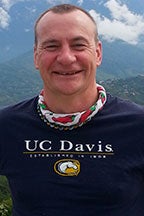

Neil McRoberts
University of California, Davis
Neil McRoberts is a professor in the Plant Pathology Department at UC Davis and researcher in the California Agriculture Experiment Station. Neil is an epidemiologist and social scientist who works on a range of plant health issues in important California crop commodities including wine and table grapes, citrus and processing tomato. Neil is the western region director for the National Plant Diagnostic Network a federal government program which supports over 70 diagnostic laboratories in US states and territories, contributing to pest and disease surveillance, public education, outreach and professional development for diagnosticians. In relation to viticulture Neil has contributed to better understanding of the dynamics of leafroll and red blotch viruses, Pierces Disease, and has recently coordinated research on behalf of CDFA and CACASA to evaluate the risk posed by Spotted Lanternfly.
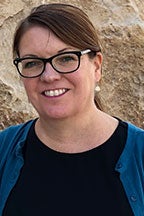

Julie Urban
The Pennsylvania State University, University Park
Dr. Julie Urban is a Research Associate Professor in the Entomology Department at Pennsylvania State University. She earned her Ph.D. in Evolutionary Biology from the University at Albany. She studies planthopper evolution and their co-evolution with multiple bacterial and fungal symbionts. Her recent work involves aspects of basic and applied research on the invasive planthopper, the Spotted Lanternfly (Lycorma delicatula). She has been a member of USDA’s Technical Working Group of scientists, advising management and research on the Spotted Lanternfly, since it was first detected in the US in September 2014. Dr. Urban has been leading a regional USDA NIFA Specialty Crops Research Initiative grant studying the biology, management, reducing the impact of Spotted Lanternfly in specialty crops in the eastern USA.

